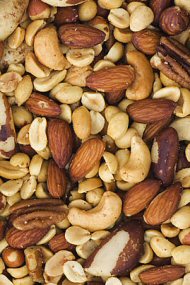Why Cyclists Should Care About Magnesium Deficiency
Over 70% of Americans are deficient in magnesium. As a cyclist, you should always be concerned with ensuring you’re not in that 70%. Magnesium deficiency is actually one of the most common nutritional deficiencies in athletes.
How your body uses magnesium
Magnesium is a cofactor in over 300 processes in our body. It is found in every cell of our body from our skeleton which holds about 50-60%; our muscles 27% and the remaining in our other soft tissue cells.
Magnesium is used in processes related to regulate how your heart beats and how your body sends signals to coordinate the kinetic movement of your muscles. Magnesium is used to rebuild muscle tissues and control inflammation, and it is used to break down sugars for energy you use to fuel your muscles. It is responsible for all aspects related to how you function which is why there are such a wide range of symptoms when you are deficient.
Here’s a breakdown:
- Protein synthesis: Magnesium is needed to build proteins to rebuild tissues.

- Muscle and nerve function: Magnesium and Calcium act in counterbalance to one another. Calcium triggers you muscle to contract and magnesium signals your muscle to relax. Without it your muscles maintain the tense state.
- Nerve function: Magnesium is also responsible for nerve conduction by transporting calcium and potassium across our cells (ionic transfer) so it can plays a large role in controlling the kinetic movement of our muscles, our heart beat, and it controls our state of mind.
- Energy metabolism: It is used in ATP (Adenosine Triphosphate) which is the energy that fuels our muscles and all body function for that matter. ATP will be predominately found in our body with its partner magnesium as mgATP.
These are only a few key places that magnesium helps manage our body. It is also responsible for controlling your blood glucose and blood pressure and can be a mask for a variety of other related and sometimes misdiagnosed diseases.
What Happens during Cycling if you are Deficient
If you are deficient in calcium you may experience lactic acid build up, poor recovery, and muscle cramping. Heavy exercise will also cause you to excrete the magnesium through perspiration.
General Signs and Symptoms:
There are mild signs of deficiency that include:
- Headaches
- Nausea
- Fatigue
- General muscle weakness
- Loss of appetite
As the magnesium deficiency continues you may experience:
- Facial and other muscle ticks
- Eye twitching or involuntary movement
- Muscle contraction or cramping
- Lack of muscle coordination
- Numbness or tingling
- Tremors
- Difficulty swallowing
- Seizures
- Coronary spasms
- Abnormal heart rate
- Depression
- Personality change
- Anxiety
- Troubles sleeping
- Events of hyperactivity
- Impaired memory
- Impaired cognitive function
Because magnesium is a cofactor with other minerals used in enzymatic processes it may also effect calcium, potassium and cause deficiencies in them as well.
Risks Factors for Magnesium Deficiency
The RDA for magnesium is 400-420mg/day for men and 310-320 mg/day for women. There are a number of risk factors that can impact this intake.
Alcohol
Control your alcohol consumption. Alcohol causes your body to excrete magnesium through your kidneys.
Nutrition
 Reduce the refined sugar in your diet, eat whole foods. If you love your refined sugar then your chances of magnesium deficiency just increased. When sugar is refined it is actually stripped of its magnesium content in the processing. When we eat this “anti-nutrient” it strips your body of minerals. No matter what food we eat, your body requires vitamins and minerals to process the food and convert it into energy for our body to use. When we choose to eat foods that are nutrient deprave we take nutrients out of our body. Secondly we are denying it of a more nutritious choice that can actually fill the nutrient store in our body instead of deplete it.
Reduce the refined sugar in your diet, eat whole foods. If you love your refined sugar then your chances of magnesium deficiency just increased. When sugar is refined it is actually stripped of its magnesium content in the processing. When we eat this “anti-nutrient” it strips your body of minerals. No matter what food we eat, your body requires vitamins and minerals to process the food and convert it into energy for our body to use. When we choose to eat foods that are nutrient deprave we take nutrients out of our body. Secondly we are denying it of a more nutritious choice that can actually fill the nutrient store in our body instead of deplete it.
Stress
Emotional stress or physical stress uses magnesium. When you think about being stressed, your body releases cortisol and adrenaline. The stress response triggers muscles tension, increase heart rate, and pretty much every cell in your body goes into full alert for an attack. Your body is ready. Magnesium is the counter to make your body settle down. It calms your nervous system, relaxes your muscles and helps control your heart rate. Stress will increase your body’s requirements for magnesium so controlling the stress is a very important factor in your health.
Caffeine
 Caffeine found in coffee, tea chocolate and soft drinks act as a diuretic which triggers your body to release magnesium and excrete it through the kidneys.
Caffeine found in coffee, tea chocolate and soft drinks act as a diuretic which triggers your body to release magnesium and excrete it through the kidneys.
Gastrointestinal disorder
If you suffer from gastrointestinal disorder, your body may have troubles absorbing magnesium.
Medications
All medications have side effects, and some may cause interference with magnesium absorption. Talk to your doctor about your medication side effects.
Calcium
Unbalanced calcium supplements are a sure way to become magnesium deficient. Calcium supplement should always be a 1:1 ratio with magnesium. If it is a 2:1 ratio, the body will try and balance the ratio in whatever way necessary.
How can I get magnesium?
The best source of magnesium is pumpkin seeds topping the chart at 532mg. Here is a short list of where to look for a good magnesium source.

- Nuts and seeds (pumpkin, sunflower, and sesame seeds)
- Unprocessed grains (like brown rice)
- Leafy greens(seaweed, spinach, Swiss chard, kale)
- And some legumes (peas, lentils, beans)
To get a huge punch of nutrients try juicing your greens. Supplementing is best achieved through a liquid form or topically. So go home and rub some magnesium in or maybe you just want to take a nice bath in some Epsom salts when you get home after your ride.
-Laurel Jorundson

